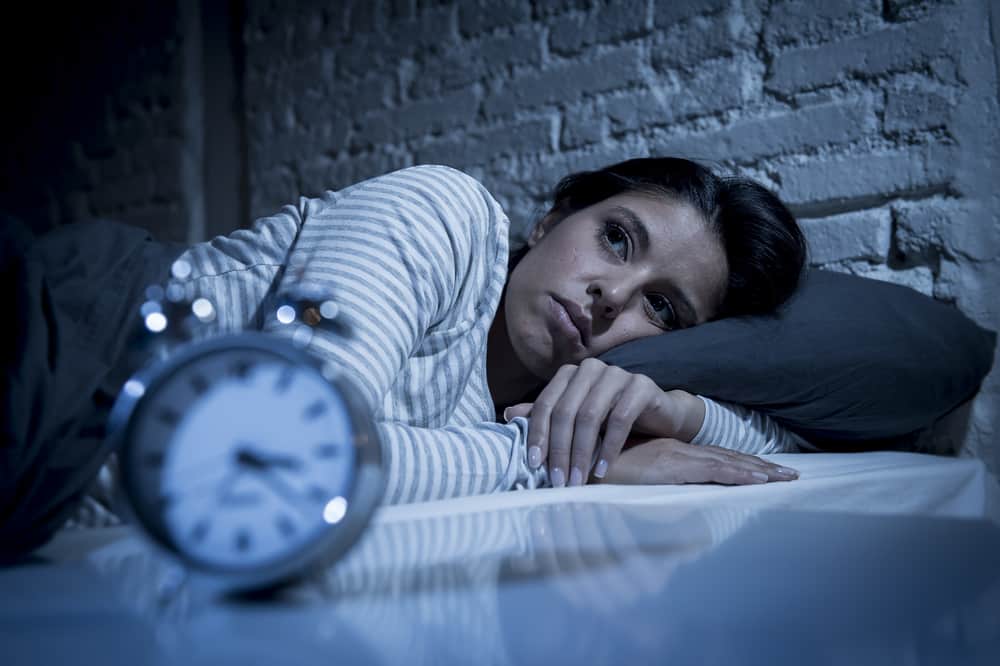Why Sleep Problems Can Worsen Chronic Pain Conditions

Sleep problems have been found to have a detrimental impact on individuals with chronic pain conditions. Research suggests that sleep deprivation can heighten pain perception, exacerbating the experience of chronic pain.
Furthermore, sleep plays a crucial role in the processing of chronic pain, with disruptions in sleep patterns contributing to an increased sensitivity to pain. This connection between sleep disorders and chronic pain creates a vicious cycle, where poor sleep quality intensifies pain intensity.
Understanding this relationship between insomnia and chronic pain can provide insights into the development and management of chronic pain conditions.
Key Takeaways
- Sleep deprivation decreases pain thresholds and increases pain intensity, prolonging pain duration.
- Sleep disturbances contribute to the development and maintenance of chronic pain conditions, heightening pain sensitivity and worsening pain perception.
- Insomnia and chronic pain have a bidirectional relationship, where insomnia can heighten pain sensitivity and intensity, and chronic pain can disrupt sleep patterns.
- Strategies for improving sleep, such as establishing a consistent sleep schedule, creating a sleep-friendly environment, and practicing relaxation techniques, are important for managing chronic pain.
Impact of Sleep Deprivation on Pain Perception
The impact of sleep deprivation on pain perception has been extensively studied in the field of chronic pain research. There is a clear relationship between sleep and pain, with sleep disturbances often exacerbating pain symptoms in individuals with chronic pain conditions. Sleep deprivation has been found to decrease pain thresholds, making individuals more sensitive to pain stimuli. Additionally, it can lead to increased pain intensity and longer pain duration.
Sleep hygiene, which refers to healthy sleep practices and habits, plays a crucial role in managing chronic pain. Improving sleep hygiene, such as establishing regular sleep patterns, creating a comfortable sleep environment, and avoiding stimulating activities before bedtime, can help alleviate pain symptoms and improve overall quality of life for individuals with chronic pain conditions.
The Role of Sleep in Chronic Pain Processing
One factor that has been extensively studied in relation to the processing of chronic pain is the role of sleep. Sleep plays a crucial role in the management of chronic pain.
Sleep disturbances, such as insomnia or sleep apnea, can exacerbate pain symptoms and decrease pain tolerance. Research has shown that poor sleep quality is associated with increased pain severity, decreased pain threshold, and impaired pain modulation.
Furthermore, sleep disturbances can disrupt the body’s natural healing processes, leading to prolonged pain and delayed recovery. Therefore, incorporating good sleep hygiene practices into chronic pain management is essential.
Sleep hygiene refers to the promotion of healthy sleep habits and behaviors, such as maintaining a regular sleep schedule, creating a comfortable sleep environment, and adopting relaxation techniques.
Sleep Disorders and Chronic Pain: A Vicious Cycle
This discussion aims to explore the interconnectedness between sleep disorders and chronic pain, focusing on the impact of sleep on pain perception, the effects of sleep deprivation on pain management, and potential treatment strategies for addressing both conditions.
Understanding the relationship between sleep and pain is crucial, as sleep disturbances can heighten pain sensitivity and contribute to the development and maintenance of chronic pain conditions.
Furthermore, exploring effective treatment approaches can help individuals suffering from both sleep disorders and chronic pain improve their quality of life and overall well-being.
Impact on Pain Perception
Sleep disturbances have been found to have a detrimental effect on the perception of pain in individuals with chronic pain conditions. The impact of sleep medications on pain perception has been a subject of interest in recent research.
Studies have shown that certain sleep medications, such as opioids and benzodiazepines, can influence pain perception by altering the central nervous system’s response to pain signals.
Additionally, there is a correlation between sleep disturbances and pain medication use. Individuals with chronic pain often rely on pain medications to manage their symptoms, but these medications can disrupt sleep patterns and exacerbate sleep disturbances.
This creates a vicious cycle where sleep disturbances worsen pain perception, leading to increased pain medication use, which further disrupts sleep.
Understanding the complex relationship between sleep disturbances, pain perception, and medication use is crucial in developing effective treatment strategies for individuals with chronic pain conditions.
Sleep Deprivation Effects
The consequences of sleep deprivation on various physiological and cognitive functions have been extensively studied in the scientific literature. One area of interest is the impact of sleep deprivation on cognitive function. Research has shown that lack of sleep can impair several cognitive processes, including attention, memory, and decision-making. Sleep deprivation has been found to decrease attention span, impair working memory, and hinder the ability to make rational decisions. Additionally, there is a strong relationship between sleep deprivation and mood disorders. Studies have shown that individuals who experience chronic sleep deprivation are at a higher risk of developing mood disorders such as depression and anxiety. The table below summarizes some of the key findings regarding the impact of sleep deprivation on cognitive function and its relationship with mood disorders.
| Cognitive Function | Effect of Sleep Deprivation |
|---|---|
| Attention | Decreased |
| Memory | Impaired |
| Decision-making | Hindered |
| Mood Disorders | Relationship with Sleep Deprivation |
|---|---|
| Depression | Increased risk |
| Anxiety | Increased risk |
Treatment Strategies for Both
Cognitive behavioral therapy (CBT) and pharmacotherapy are two commonly utilized treatment strategies for addressing sleep deprivation and mood disorders. When it comes to sleep management, individuals have various treatment options available to them. These options can be categorized into two sub-lists:
- Non-pharmacological treatments:
- Cognitive behavioral therapy (CBT): This therapy aims to identify and modify negative thoughts and behaviors that contribute to sleep problems. It may involve techniques such as sleep restriction, stimulus control, and relaxation training.
- Sleep hygiene education: This involves educating individuals about healthy sleep practices, such as maintaining a regular sleep schedule, creating a conducive sleep environment, and avoiding stimulating activities before bedtime.
- Pharmacological treatments:
- Medications: Certain medications, such as sedatives or hypnotics, may be prescribed to help individuals with their sleep problems. These medications work by promoting relaxation and inducing sleep.
Overall, treatment options for sleep management encompass both non-pharmacological and pharmacological approaches, allowing individuals to choose the most suitable strategy based on their specific needs and preferences.
Sleep Quality and Its Effect on Pain Intensity
The relationship between sleep and pain has been extensively studied, revealing a strong connection between the two. Research has shown that poor sleep quality is associated with increased pain intensity in individuals with chronic pain conditions.
Understanding the impact of sleep on pain intensity is crucial for developing effective treatment strategies for chronic pain management.
Sleep-Pain Connection
Research has shown a strong association between sleep disturbances and increased pain sensitivity in individuals with chronic pain conditions. Sleep quality plays a crucial role in the overall well-being of individuals, and disruptions in sleep can exacerbate their pain symptoms.
- Impact of Sleep Deprivation on Cognitive Function:
Reduced cognitive function and impaired attention and memory have been observed in individuals experiencing sleep deprivation. Sleep deprivation can also lead to difficulties in decision-making and problem-solving. - Sleep Hygiene Tips for Better Sleep Quality:
Establish a consistent sleep schedule by going to bed and waking up at the same time every day. Create a sleep-friendly environment by keeping the bedroom dark, quiet, and at a comfortable temperature. Avoid stimulating activities and electronic devices before bedtime. Practice relaxation techniques, such as deep breathing or meditation, to promote better sleep.
Pain Intensity and Sleep
One factor that has been found to significantly influence pain intensity is the quality of sleep individuals experience. Sleep disturbance, which refers to any difficulty in falling asleep, staying asleep, or experiencing restful sleep, has been shown to have a significant impact on sleep quality and subsequently on pain intensity.
Research has indicated a bidirectional relationship between sleep disturbance and pain, with each exacerbating the other. Individuals with chronic pain conditions often experience disrupted sleep patterns, characterized by frequent awakenings and reduced total sleep time. This sleep disturbance can lead to heightened pain sensitivity and increased pain intensity.
Various mechanisms have been proposed to explain this relationship, including alterations in pain processing pathways, increased inflammation, and changes in neurotransmitter levels. Therefore, addressing sleep problems may be an important therapeutic strategy for managing chronic pain and reducing pain intensity.
Understanding the Connection Between Insomnia and Chronic Pain
Understanding the connection between insomnia and chronic pain involves examining the interplay of sleep disturbances and pain perception.
Insomnia, a sleep disorder characterized by difficulty falling asleep or staying asleep, can have significant consequences for individuals with chronic pain.
The relationship between insomnia and chronic pain is bidirectional, with each exacerbating the other.
The consequences of insomnia in individuals with chronic pain include heightened pain sensitivity, increased pain intensity, and decreased pain tolerance.
On the other hand, chronic pain can disrupt sleep patterns, leading to difficulty initiating or maintaining sleep.
To address the interplay between insomnia and chronic pain, treatment approaches should focus on targeting both conditions simultaneously.
Cognitive-behavioral therapy for insomnia (CBT-I) is an effective treatment option that includes techniques to improve sleep hygiene, reduce pain-related anxiety, and promote relaxation.
Medications such as sedatives or analgesics may also be prescribed to manage both insomnia and chronic pain.
Sleep Disturbances and the Development of Chronic Pain Conditions
The relationship between sleep disturbances and the development of chronic pain conditions requires careful investigation into the potential role that disrupted sleep patterns may play in the onset and progression of pain-related ailments. One aspect to consider is the impact of stress on sleep disturbances. Stress has been shown to disrupt sleep patterns and can contribute to the development or worsening of chronic pain conditions. Additionally, there is a strong relationship between sleep disturbances and mental health. Conditions such as anxiety and depression are commonly associated with both sleep disturbances and chronic pain. Understanding the complex interplay between these factors is essential in order to develop effective treatment strategies for individuals experiencing chronic pain.
| Factors Influencing Sleep Disturbances |
|---|
| Stress |
| Mental health |
| Chronic pain |
| Sleep quality |
Strategies for Improving Sleep to Manage Chronic Pain
Strategies for improving sleep in individuals with chronic pain can be beneficial in managing their overall well-being. Sleep disturbances are common in chronic pain patients, and addressing these issues can help alleviate pain symptoms and improve quality of life.
Here are some strategies for managing sleep disturbances and promoting better sleep hygiene in chronic pain patients:
- Establish a consistent sleep schedule:
- Go to bed and wake up at the same time every day, even on weekends.
- This helps regulate the body’s internal clock and promote better sleep.
- Create a sleep-friendly environment:
- Make sure the bedroom is cool, quiet, and dark.
- Use comfortable bedding and pillows to enhance comfort.
- Practice relaxation techniques:
- Engage in activities such as deep breathing, meditation, or progressive muscle relaxation before bedtime.
- These techniques can help reduce pain levels and promote relaxation for better sleep.
Frequently Asked Questions
How Can Chronic Pain Affect the Quality of Sleep?
The relationship between chronic pain and sleep quality is a topic of interest. Chronic pain can affect the quality of sleep by causing difficulty falling asleep, maintaining sleep, and experiencing non-restorative sleep.
What Are Some Common Sleep Disorders That Can Worsen Chronic Pain Conditions?
Various sleep disorders can exacerbate chronic pain conditions. These disorders, such as insomnia, sleep apnea, and restless leg syndrome, can disrupt sleep patterns and impair the restorative functions of sleep, contributing to increased pain sensitivity.
Are There Any Specific Strategies or Techniques for Improving Sleep That Can Help Manage Chronic Pain?
Various sleep techniques can be employed to manage chronic pain. These strategies aim to improve sleep quality, such as establishing a consistent sleep routine, creating a comfortable sleep environment, and practicing relaxation techniques before bedtime.
Can Improving Sleep Quality Lead to a Reduction in Pain Intensity for Individuals With Chronic Pain?
Improving sleep quality has the potential to reduce pain intensity in individuals with chronic pain. Sleep plays a significant role in pain processing and modulation, and enhancing sleep can positively impact pain perception and management.
Is There a Specific Connection Between Insomnia and Chronic Pain, and How Does It Impact Pain Perception?
The connection between insomnia and chronic pain has been investigated to understand its impact on pain perception. Research suggests that insomnia can exacerbate the experience of pain, potentially through disrupted sleep patterns and altered pain processing mechanisms.









